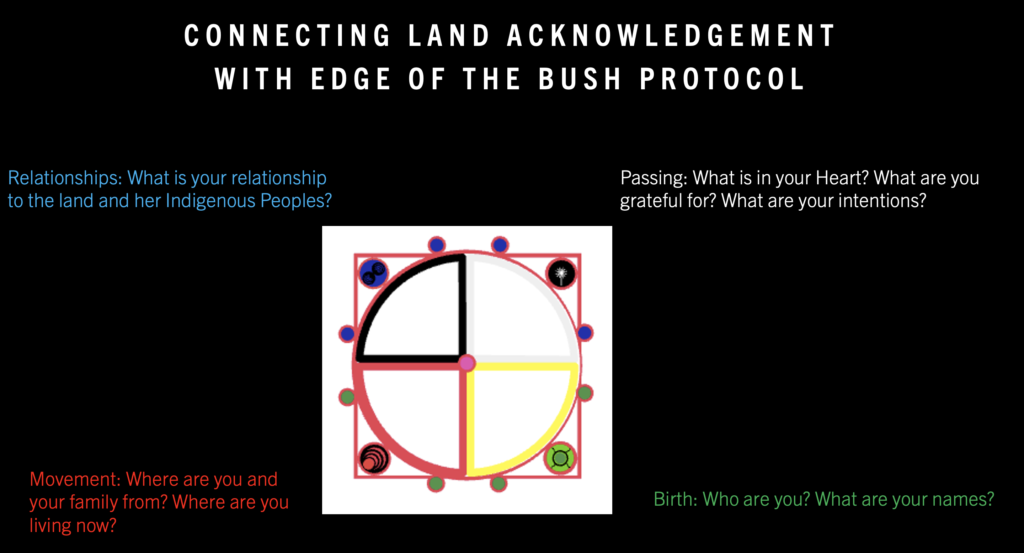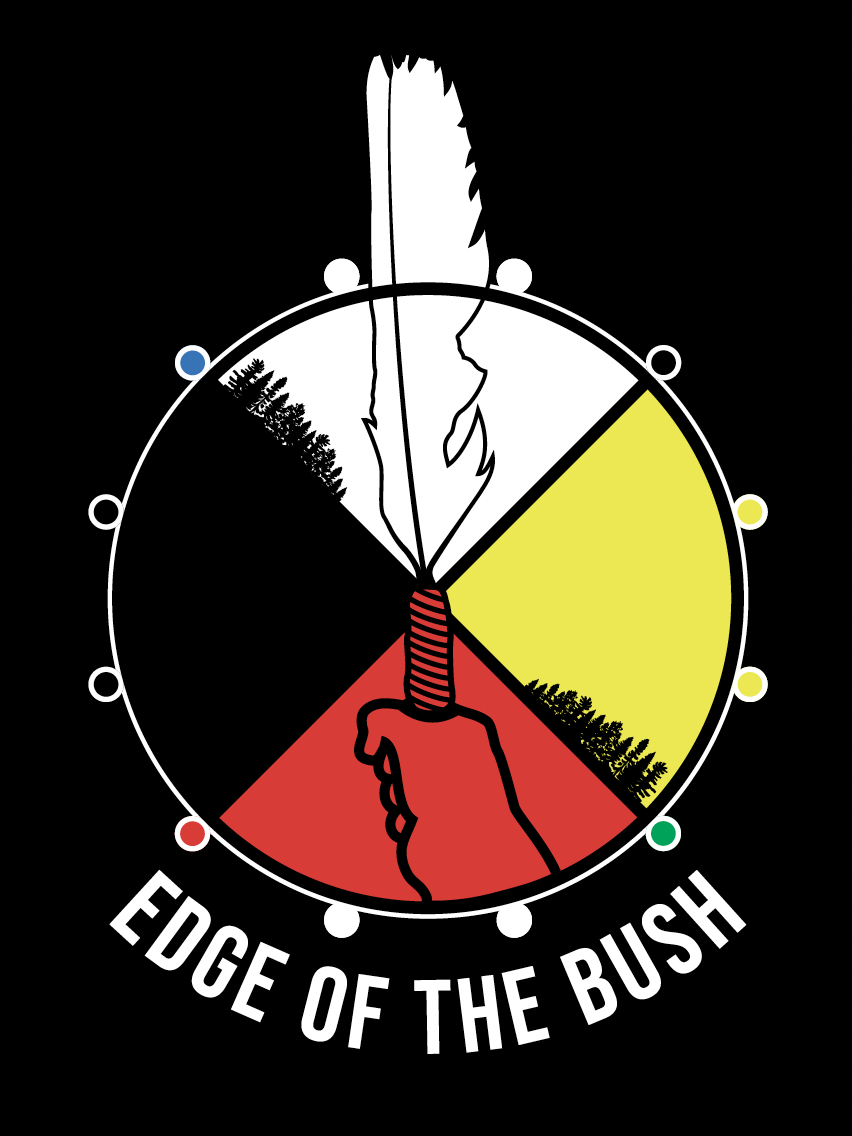In Tkaronto (Toronto) where I continue to live with my family, “land acknowledgements” or learning to state the names of the Indigenous Peoples and/or treaties that were signed with First Nations has become a common practice at schools and other government influenced gatherings. What started as a way to learn “whose land is it anyways?“, has become a simple way for settlers to feel like they are doing something about the Truth and Reconciliation Commissions 94 Calls to Action. However, land acknowledgements with no further actions to repair relationships can become a pretty bad joke at Indigenous Peoples expense.
It has been my experience, that Truth and Reconciliation which is in its essence about “establishing and maintaining mutually respectful relationships” between Indigenous Peoples and settlers starts in our own Hearts and Minds with our immediate relationships. From my perspective, the first step is learning to acknowledge “who we are” and “where we are” in relationship to the land and her peoples.
Old Ojibwe protocol (like many other Indigenous Nations) expects that when you come to the “edge of the bush” of their Sacred Territory that you are able to state who you are, where you are from, who your relatives are, and your intentions for coming over this way. This means you need to know about your own family, the lands you come from, along with knowing whose land you are on now.
Based on my research of the Seasonal Pedagogy, I noticed that it offers a helpful guide for learning to introduce yourself in relationship to those four seasonal teachings of Birth, Movement, Relationships, and Passing.

Learning to think in this relational way can eventually connect you to “the completeness of being who you are and where you are” in which land acknowledgement becomes a practice of describing the land that owns us.
Here are a few more questions that can deepen this reflective practice of learning to introduce yourself and your relations:
- Birth: Who are you? What are your names? Do you know your clan or family?
- Movement: Where are you from? Where were you born? How did you come to be where you are now?
- Relationships: Who are your relationships? Where were your families born? What land knows you? What are your relationships to Indigenous communities?
- Passing: How are you feeling today? What are your intentions? What is in your heart?
Following the teachings of my Auntie, Dr. Gokoomis Jacqueline Lavallée this is how I introduce myself and acknowledge the land that owns me following that protocol:
- Nanaboozhoo (Greetings in the Name of Ojibwe First Teacher) Indaawemaageniidoog, N’Kaanisiidoog (All my Female and Male Relatives)! Gizhewe’e Inini n’dishnikaas (Kind Man I am called). Waabizheshi Doodem gaye (I am Marten Clan too). My other given names are Dr. Hopi Lovell Martin.
- I am named after the Hopi Nation and the Briton warriors who came to Mishiikenh Minissing (Turtle Island/North America) from England. My ancestries are Lenni Lenape, Briton, and European. I was born on the western edge of Massachusetts between the Green and the Housatonic Rivers in Mahican Territory, but I was raised in Tkaronto (Toronto), the Traditional Territory of Anishinaabeg, Tionontatí (Petun/Tobacco Nations), Attawandron (Neutrals), Huron-Wendat, the Seneca Nation of the Hodenosaunee, and that is currently in the care of Mississaugas of the Credit First Nation.
- It is within this context that I have come to belong to Waabizheshi Doodem through my Auntie and Niiyawe’enh (Namesake), Dr. Gokoomis (Grandmother) Jacque(line) Lavallée, Waabizheshi Doodem, Niizho Mide’ow (2nd Degree) in the Midewigaan (Three Fires Grand Medicine Lodge).
- Through this relationship I am nephew and Oshkaabewis following an old-time Traditional Ojibwe Path called Asemaa Nitam. It is with this Sacred Medicine of Kindness that I walk with children, families, and educators from all Nations/Peoples, looking to heal their relationships with each other and their shared Mother, Doodoom Aki.
- Gichi Miigwech (A Big Thank You), Niigaaniikina, Niigaanis Akina Gwa (All my Relations)!
